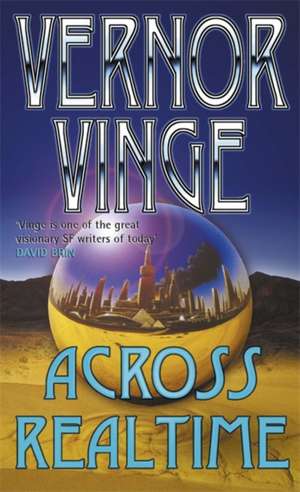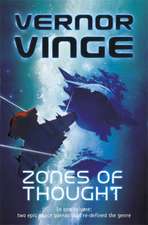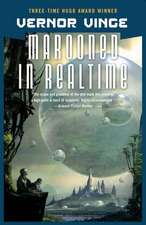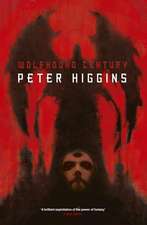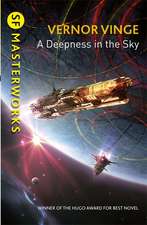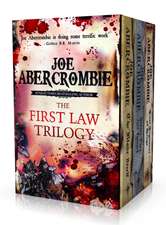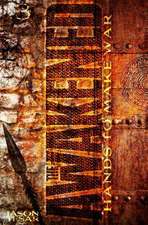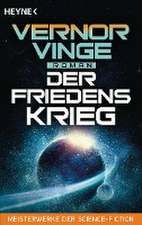Across Realtime
Autor Vernor Vingeen Limba Engleză Paperback – 9 mar 2000
Preț: 54.51 lei
Preț vechi: 70.60 lei
-23% Nou
Puncte Express: 82
Preț estimativ în valută:
10.43€ • 11.15$ • 8.70£
10.43€ • 11.15$ • 8.70£
Carte disponibilă
Livrare economică 27 martie-10 aprilie
Livrare express 13-19 martie pentru 38.76 lei
Preluare comenzi: 021 569.72.76
Specificații
ISBN-13: 9781857981476
ISBN-10: 1857981472
Pagini: 544
Dimensiuni: 189 x 135 x 36 mm
Greutate: 0.31 kg
Editura: Orion Publishing Group
Locul publicării:London, United Kingdom
ISBN-10: 1857981472
Pagini: 544
Dimensiuni: 189 x 135 x 36 mm
Greutate: 0.31 kg
Editura: Orion Publishing Group
Locul publicării:London, United Kingdom
Notă biografică
Vernor Vinge (1944 - )
Vernor Steffen Vinge was born in Wisconsin in 1944. He is a retired San Diego State University Professor of Mathematics, a computer scientist and science fiction author. He is best known for his two epic space operas A Fire Upon the Deep (1992) and A Deepness in the Sky (1999), both of which won the Hugo Award and were shortlisted for the Nebula. He is the winner of 5 Hugos, 4 Prometheus Awards and the John W. Campbell Memorial Award, among many others. In addition to his works of science fiction, Vinge authored the influential 1993 essay 'The Coming Technological Singularity', in which he argued that the creation of superhuman artificial intelligence will mark the point at which 'the human era will be ended', such that no current models of reality are sufficient to predict beyond it.
Vernor Steffen Vinge was born in Wisconsin in 1944. He is a retired San Diego State University Professor of Mathematics, a computer scientist and science fiction author. He is best known for his two epic space operas A Fire Upon the Deep (1992) and A Deepness in the Sky (1999), both of which won the Hugo Award and were shortlisted for the Nebula. He is the winner of 5 Hugos, 4 Prometheus Awards and the John W. Campbell Memorial Award, among many others. In addition to his works of science fiction, Vinge authored the influential 1993 essay 'The Coming Technological Singularity', in which he argued that the creation of superhuman artificial intelligence will mark the point at which 'the human era will be ended', such that no current models of reality are sufficient to predict beyond it.
